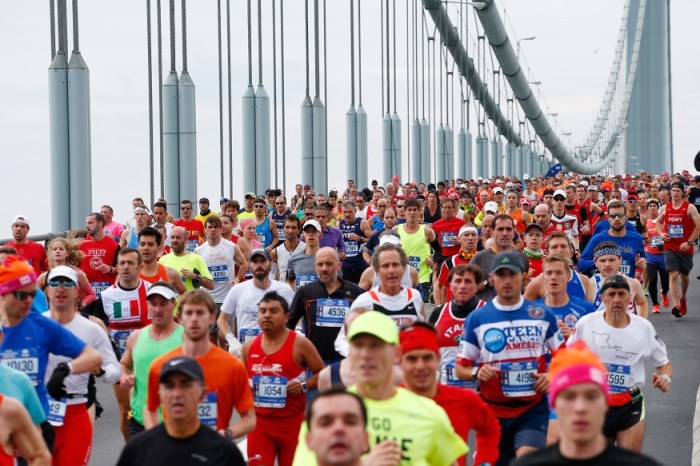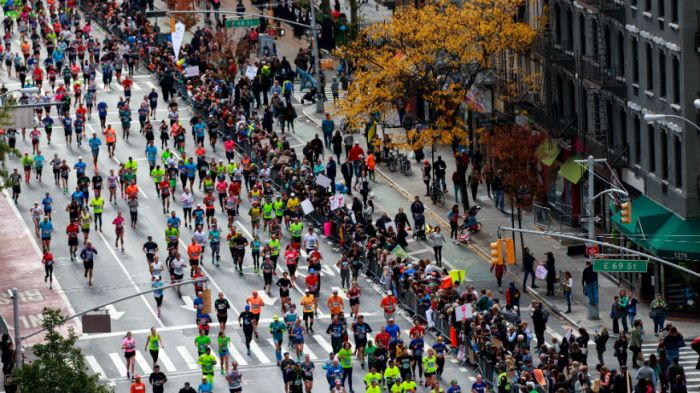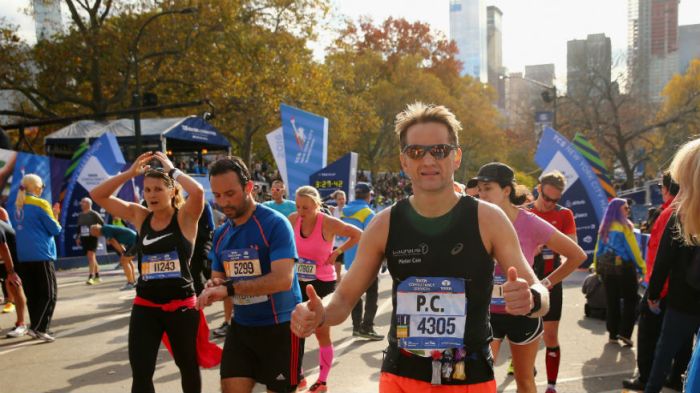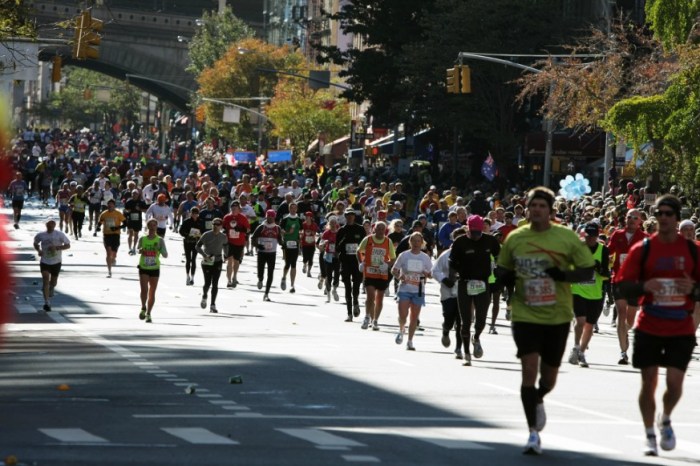There is, obviously, a lot of prep work that goes into running the New York City Marathon. And as the Nov. 5 race is the world’s largest with more than 51,000 finishers last year, the competition is fierce — and the course is grueling.
But that’s not deterring Patrick Jass of Williamsburg, who is running it as his first full marathon. The 38-year-old artist started long-distance running last year to be healthier, and he signed up for the Brooklyn Half Marathon to have something to train for.
“It was the most mentally and physically challenging experience I’ve ever had,” he said of his first-ever race. “Running is not just about running; everything you do is to optimize your run. I realized if I was going to continue doing this, I’d need the help of experts.”
He sought out NYU Langone’s Sports Performance Center (SPC), which works with amateur and professional athletes looking to ramp up their performance or recover from injuries. The SPC also offers a Running Lab to evaluate training, nutrition, strength and flexibility and more
The lab was created after the SPC started seeing an influx of running injuries like shin splints and back and knee pain, said Wil Colon, a clinical specialist who is one of its founders.
“It’s very tailored to the individual, so whatever issue you came in with — whether it’s preventing an injury, trying to get over an existing injury or improving your performance, we can help with that,” he said.
Running Lab participants get in-depth, state-of-the art assessments of every facet of their performance, but for Jass, the nutritional evaluation was most eye-opening.
“I knew nothing about nutrition,” he said. “I thought I was eating well, but fueling your body for the race to make sure you are optimizing your performance, I was missing that.”
Jass learned about timing, quantity and tracking his food and getting a balanced diet before and after a run.
“I’ve become a better runner because of my nutrition changes,” he said.
Jass has now done the Brooklyn Half twice and will run in the Tokoyo Marathon in February. The furthest he’s run is 20 miles, “which was a major achievement. I never knew I could go that far,” he said.
But come Nov. 5, he hopes to add 6.2 miles to his personal best and “finish the marathon, and finish in under four hours.”
Marathon mindfulness
While form, stamina and footwear are all important on race day, there’s one powerful “muscle” that runners (and most people, really) often forget to train: their mind.
“It takes a lot to run 26.2 miles, and most of that will and desire is mental,” Colon said. “If you’re planning to run a marathon, you have to have the mental fortitude and focus to do so.”
To Jass, the most important, exciting and challenging part of running is “that mental challenge of pushing yourself through the internal voices that tell you to slow down or hit the snooze button,” he said.
That’s where sports psychologist Bonnie Marks comes in.
“We work on mental preparation for training, practice and events, basically how to remove the obstacles that are blocking performance, like anxiety, self-doubt or negative thoughts. In some cases, it’s injuries or fear of being reinjured.”
Here are Marks’ tips for staying mindful while training, running and, well, living:
• Breathe — “This is the most important tool of all,” she said.
• Stay relaxed, yet alert. — “If you feel you’re tensing, use self-talk.”
• Check your body and posture as fatigue sets in.
• Listen to your environment. — “I love the pitter-patter of feet hitting the 59th Street Bridge,” Marks said.
• Have a mantra such as “I’ve trained for this” or “I can do this.”
• Take deep breaths, especially if you’re in pain.
• Get enough sleep.
• Eat well.
• Strength train


















